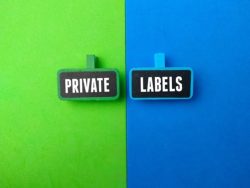Unveiling the Power of Private Labeling: Empowering Customers to Build Their Own Brands

What is Private Labeling?
Private labeling refers to the process of branding a product or service under one’s own name instead of the original manufacturer’s. This allows customers to leverage their brand and differentiate themselves while offering high-quality products to their target audience. Private labeling has gained significant popularity in recent years due to the numerous benefits it offers to both businesses and customers.
Building Brand Identity
Private labeling enables customers to build their own brand identity from scratch. By creating unique packaging designs, logos, and labels, customers can establish a strong brand presence in the market. This allows them to differentiate themselves from competitors and position their products as premium offerings. Customers can also tap into their target market’s preferences and values, crafting a brand identity that resonates with their audience. This personalized branding helps build trust, loyalty, and recognition among consumers, giving customers a competitive edge.
Customization and Product Control
One of the key advantages of private labeling is the ability to customize products to cater to specific market demands. By leveraging their knowledge and understanding of their target audience, customers can choose product attributes such as ingredients, flavors, and packaging that align with their customers’ preferences. This level of control allows customers to create products that meet the exact requirements of their niche market, resulting in increased customer satisfaction and loyalty.
Quality Control and Assurance
In private labeling, customers have complete control over quality control processes. They can ensure that the products they offer meet their desired quality standards by choosing reliable manufacturers and suppliers. Customers can conduct thorough research and vetting processes before selecting suppliers, guaranteeing that the products uphold their brand’s reputation for excellence. This meticulous quality control not only benefits the customers but also fosters trust among end consumers, further reinforcing the brand’s reputation in the market.
Cost-Effective Solution
Private labeling is often more cost-effective than manufacturing products from scratch. By leveraging existing formulas and production capabilities, customers can save on research and development costs. They can also benefit from economies of scale when purchasing goods in bulk, reducing production costs significantly. This cost savings can be reinvested in marketing efforts or passed on to customers, offering them high-quality products at competitive prices.
Enhanced Customer Loyalty
When customers own their brand, they are able to strengthen the bond with their target audience and foster enduring customer loyalty. By consistently delivering high-quality products under their own branding, customers build a sense of trust and reliability. When customers repeatedly encounter their brand on the market, they become familiarized with the products and perceive them as a reliable choice. This creates a loyal customer base that is not easily swayed by competitors, providing customers with a sustainable advantage.
Market Expansion Opportunities
Private labeling also opens doors to new market expansion opportunities. Customers can leverage their existing brand presence in one market to enter other niches or geographical locations. By exploring new target markets and adapting product offerings to suit their needs, customers can capture a broader customer base and grow their business exponentially. The versatility and adaptability of private labeling allow customers to stretch their brand’s reach and explore untapped markets beyond their initial scope.
Conclusion
In a world where differentiation is key, private labeling offers customers a powerful tool to build their own brands. This strategy empowers customers to create a unique brand identity that resonates with target audiences, resulting in enhanced customer loyalty and market expansion opportunities. With the ability to control every aspect of product development and branding, customers can offer high-quality products and differentiate themselves from competitors. In essence, private labeling is more than just a branding strategy; it is a catalyst for customer empowerment and business growth.
Got Questions? Let Us Help!
Categorized in: Private Labeling
